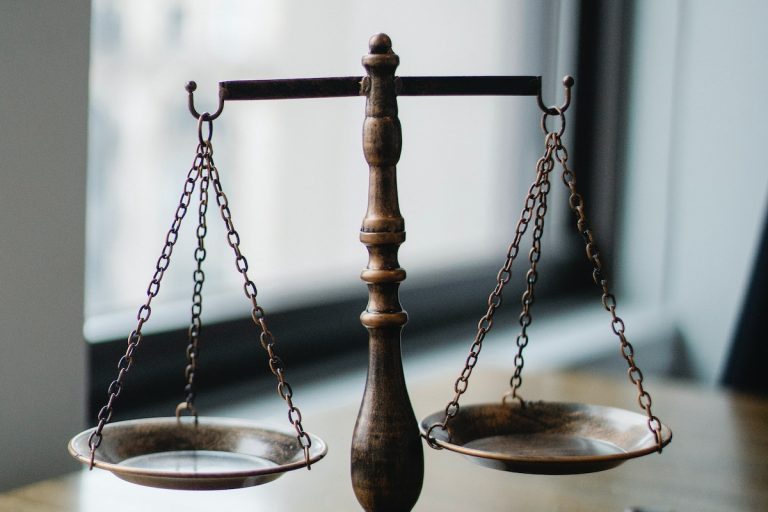- Hire an experienced attorney specializing in your case type and maintain civil, respectful interactions.
- Avoid discussing your case without your attorney present to prevent self-incrimination.
- Being transparent with your attorney leads to a more effective defense strategy.
- Understand your charges, prepare for trial, and rely on your attorney to ensure a fair trial.
- Trust your attorney to protect your rights and represent your interests.
Being charged with a crime can be an overwhelming and daunting experience. Whether you are facing a misdemeanor or felony charge, the prospect of criminal prosecution can have significant consequences, including hefty fines, imprisonment, loss of employment opportunities, and damage to your reputation.
It is essential to understand the criminal justice system and have a solid defense strategy when facing such charges. This blog will provide expert tips to help you navigate criminal prosecution and build a strong defense.

Hire an Experienced Attorney
The first step in building a solid defense is to work with a reputable criminal defense firm. The firm can assign an experienced criminal defense attorney to handle your case. A knowledgeable attorney can help you navigate the complexities of the criminal justice system and guide you through the legal process.
Skills and Experience
They have the skills and experience to investigate the case, collect evidence, and negotiate with the prosecution. They can also represent you in the trial if necessary. Choosing a lawyer specializing in your type of case and with a proven track record of successfully defending clients is essential.
Remain Civil and Respectful
It is essential to remain civil and respectful throughout the criminal defense process. This includes both you and your lawyer. Both parties need to work together to mount a successful defense strategy.
Don’t Discuss Your Case Without Your Attorney
One of the most common mistakes people make when facing criminal charges is discussing their case with friends, family members, or colleagues. Understanding that anything you say can be used against you in court is crucial.
Attorney-Client Privilege
Only discuss your case with your attorney, who is bound by the attorney-client privilege and can keep your conversations confidential. It is also important to avoid talking about your case on social media or other public forums. Doing so can weaken your defense and put you at risk of further prosecution.
Be Honest with Your Attorney
Your attorney is your advocate, and they need to know all the details of your case to build a solid defense. You must be honest with your attorney and provide them with all the information they need to represent you effectively.
Damage Your Defense
If you withhold information from your attorney, it could damage your defense and make it difficult for them to negotiate with the prosecution. They may be able to discover the information from other sources, but it is better if you are honest with them from the start. Being honest with your attorney will also help them build trust and form a better defense strategy.
Understand the Charges Against You
It is essential to clearly understand the charges against you and the potential consequences. Your attorney can help you understand the charges, the elements of the crimes, and the possible defenses. They can help you identify weaknesses in the prosecution’s case and develop a defense strategy that best represents your interests.
Criminal Justice System
Understanding the criminal justice system, including your jurisdiction’s applicable laws and procedures, is also essential. Your attorney can explain these matters to you so that you have a better understanding of how the criminal prosecution process works. This will help equip you with practical knowledge about the risks associated with each step of the proceedings and allow you to make informed decisions on your defense strategy.
Sentencing Guidelines
In addition, you should have a basic knowledge of the penalties that may be imposed in your case. This includes understanding sentencing guidelines and potential fines or other consequences for being found guilty of a criminal offense. Your attorney can provide detailed guidance on these matters as well.

Prepare for Trial
If your case goes to trial, it is essential to be prepared. Your attorney will work with you to prepare your testimony and strategize the best approach to defense. This may include gathering evidence, interviewing witnesses, and preparing exhibits. Your attorney will also help you understand the court’s rules, the trial’s potential outcomes, and what to expect during the trial.
Ensure a Fair Trial
It’s important to remember that the criminal justice system is in place to ensure a fair trial. Your attorney will help you determine if your rights have been violated and how best to raise those issues during the trial. In addition, your attorney can ensure all evidence is presented fairly and accurately so that you get a fair hearing.
Facing criminal charges can be a stressful and overwhelming experience. But with a solid defense strategy and the right attorney, you can confidently navigate the criminal justice system. Hiring an experienced criminal defense attorney, being honest with them, understanding the charges, and preparing for trial are all essential steps to building a robust defense. Remember, don’t discuss your case with anyone other than your attorney, and trust your attorney to represent your interests and protect your rights. With these expert tips, you can face your charges head-on and achieve the best possible outcome.







